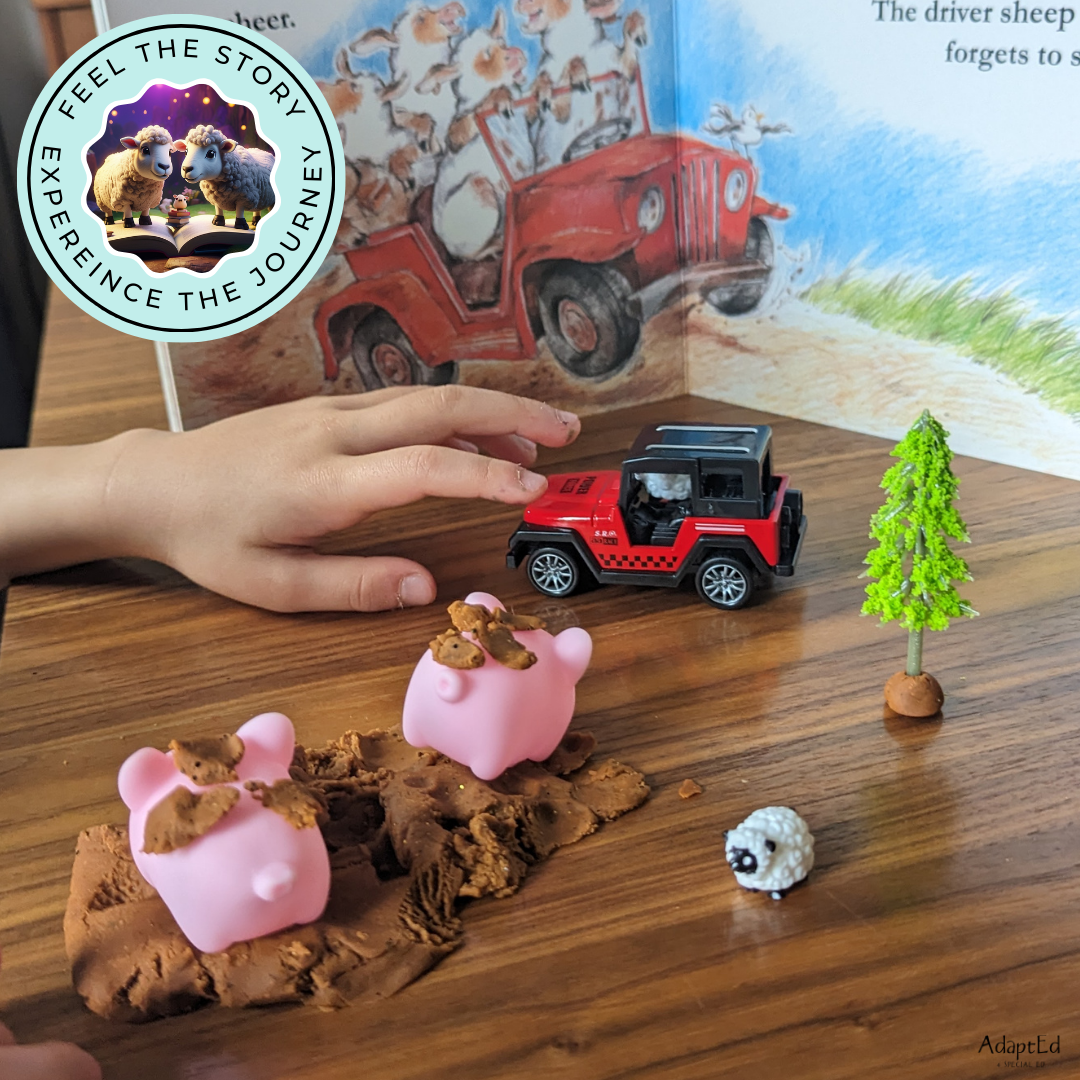As an educator immersed in the world of special education, I've had plenty of opportunities to witness the transformative power of multi-sensory storytelling (MSST) in the classroom. Today, at AdaptEd 4 Special Ed, we're delving into what MSST is, why it matters, and how it serves as a beacon of learning and connection for students with profound and multiple learning disabilities.
What is Multi-Sensory Storytelling?
At its core, MSST is a method of storytelling that includes various sensory stimuli designed to engage learners not just on a visual or auditory level, but across all senses. This approach gives students the opportunity to experience stories in a way that goes beyond mere listening or watching, allowing them to touch, smell, taste, see, and hear elements of the narrative.
Research has shown that MSST is used extensively in countries like the United Kingdom and is gaining popularity in regions such as the Netherlands and Belgium (Flanders), where its implementations are showing promising growth (Source: Wiley Online Library).
Why Use Multi-Sensory Storytelling?
The benefits of MSST, especially for children with profound intellectual and multiple disabilities, are tremendous. It helps develop communication and inclusive literacy skills through an interactive form of learning that respects the diverse ways in which students absorb and process information (Source: IGI Global).
MSST has been found to be more than just a teaching tool; it's also seen as an intervention technique that aids in coping with sensitive issues, as shown by behavioural observations during storytelling sessions (Source: Taylor & Francis Online). By considering listener attentiveness during MSST, educators have an edge in creating highly engaging learning environments (Source: Wiley Online Library).
How Does MSST Work in Practice?
To incorporate MSST effectively into our teaching practices, stories should be adapted to individual needs, focusing on relevant themes and integrating appropriate sensory elements. The goal is not only to tell a story but to immerse the learner in the narrative, allowing them to interact with it and thus, internalize it more deeply.
An essential aspect of MSST is repetitiveness and personalization. Familiarizing students with personalized stories promotes an increase in alertness and involvement over time, which enhances the overall educational experience (Source: Taylor & Francis Online).
Audio Design in MSST
Audio design plays a crucial role in crafting multi-sensory images for the mind. Sound is not just an ambient effect; it's a storytelling element that can define a setting, a character, or an action, thereby creating a vivid and memorable experience (Source: Taylor & Francis Online).
Conclusion
Multi-sensory storytelling is not just another pedagogical fad; it's a robust educational approach backed by research and practice, offering learners with profound intellectual and multiple disabilities a unique way to connect with the world around them. By implementing MSST in our classrooms, we're not just educators; we're facilitators of a deeper, more meaningful learning journey.
In embracing MSST, we at AdaptEd 4 Special Ed reaffirm our commitment to providing the best educational experiences for our students. Let's continue to explore the multi-sensory world of stories and unlock the full potential of every learner.
This exploration into the world of multi-sensory storytelling just scratches the surface of the possibilities that await both educators and learners. As we continue to adapt and evolve our teaching strategies, MSST remains a beacon of hope and engagement for students with unique learning needs.



